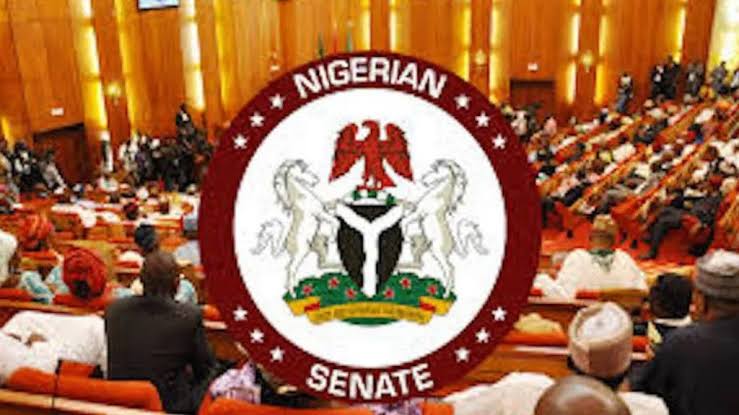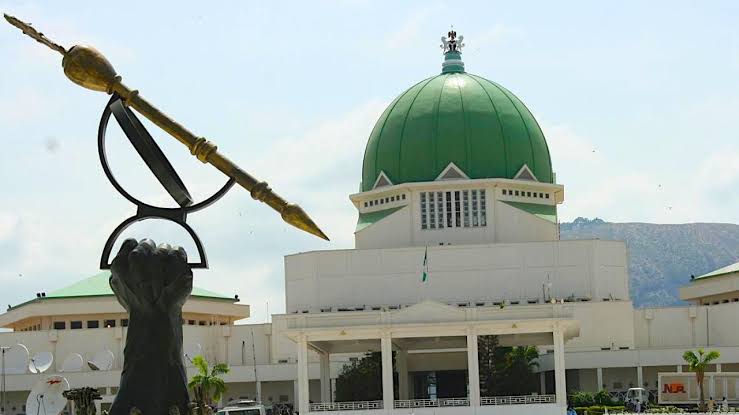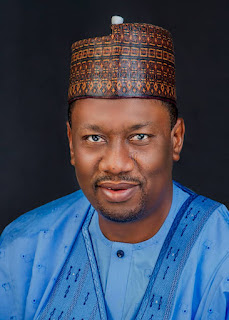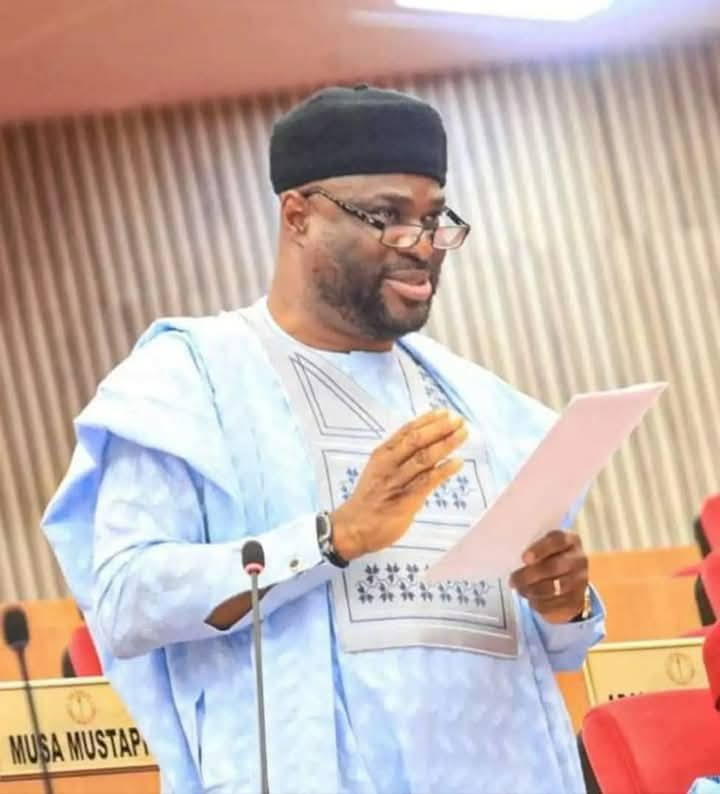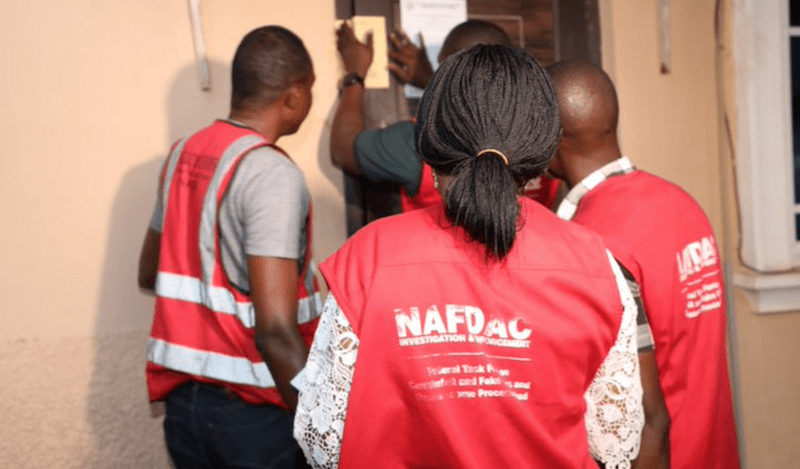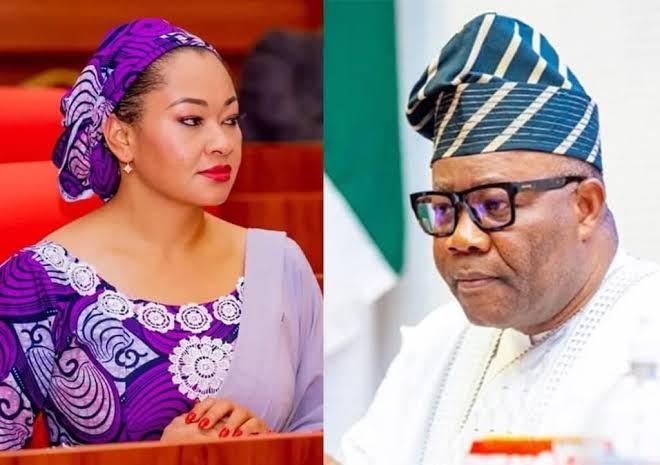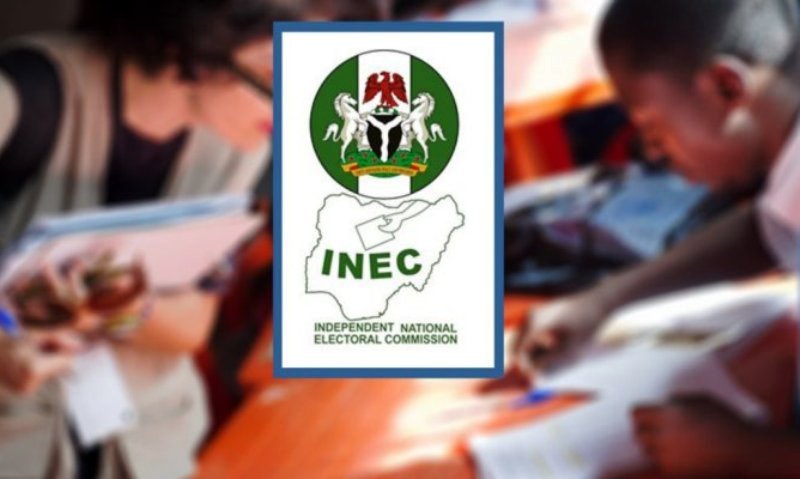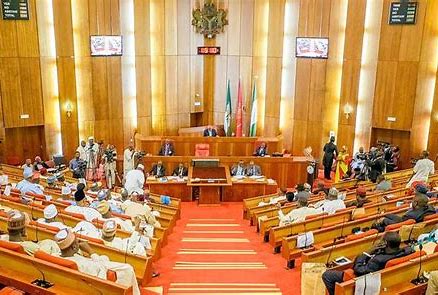Senator representing Kogi Central, Natasha Hadiza Akpoti-Uduaghan has petitioned the Inspector-General of Police, Kayode Egbetokun, accusing Senate President Godswill Akpabio of masterminding a coordinated smear campaign aimed at discrediting her and silencing her s3xual harassment allegations.
In the petition submitted through her legal team led by Dr. Ehiogie West-Idahosa, SAN, Senator Akpoti-Uduaghan alleges that her safety, reputation, and political career are under attack in what she describes as a “malicious campaign of criminal defamation, cyber-stalking, conspiracy, and attempted assassination” engineered by the Senate President.
The petition, supported by what her lawyers described as “incontrovertible evidence from public broadcasts, witness testimonies, media reports, and expert analyses,” claims the retaliatory campaign began shortly after the senator publicly accused Akpabio of sexual harassment on national television on February 28, 2025.
“In the weeks following our client’s suspension from the Senate, a previously unknown individual styling herself as ‘Professor Mgbeke’ began publishing sympathetic commentaries on Facebook… however, what followed shocked our client,” the petition reads.
“Immediately after our client declined any form of transactional engagement, ‘Prof. Mgbeke’ began what evolved into a deliberate, malicious and coordinated campaign of character assassination.”
According to the petition, the woman behind the online persona “Prof. Mgbeke” was later identified as Dr. Sandra Chidinma Duru, a Nigerian resident in Texas. Senator Natasha claimed she only discovered Duru’s true identity after a live broadcast on May 1, 2025, and subsequent journalistic investigations.Nigerian fashion
“She had never heard the name Sandra Duru until law enforcement officers requested she identify her. The deception, the manipulation of public sentiment, and the ultimate betrayal formed the foundation of a well-orchestrated campaign designed to destroy our client’s public image,” the petition notes.
The petition directly links Senator Akpabio to Dr. Duru’s alleged smear campaign, citing a revealing May 1 broadcast in which Duru inadvertently exposed her phone’s call log. The log allegedly contained saved contacts such as “My Daddy Directline,” “IGP Kayode,” “Senator Akpabio” (with two different numbers), and “Oby Ndukwe,” among others.
“These are not coincidences,” the petition argues. “The presence of these names, particularly those occupying high-level positions within Nigeria’s security architecture, strongly suggests that Senator Akpabio and Dr. Duru were acting in concert, possibly with the support or knowledge of certain police officials.”Nigerian fashion
A key figure mentioned in the petition is Monday Ubani, SAN, a Senior Legislative Aide and legal counsel for Senator Akpabio, who reportedly praised “Prof. Mgbeke” after her broadcast despite widespread public condemnation of its content.
“Mr. Ubani’s eulogy, when viewed alongside the call log linking ‘Prof. Mgbeke’ to Senator Akpabio, suggests insider awareness and tacit approval from Akpabio’s inner circle,” the petition adds.
In one of the most disturbing parts of the broadcast, Duru allegedly accused Senator Natasha of being part of a conspiracy to “remove the Yoruba government,” a claim the petition describes as not just defamatory, but treasonous.
“This assertion, by its very nature, imputes that our client was involved in a plot against the executive arm of the Federal Government… The deliberate use of ethnic framing was meant to incite national disaffection and trigger security backlash against her,” the petition warns.
The legal team noted that Dr. Duru’s sudden hostility began when the senator refused her demands for financial compensation under the guise of managing her public image.
The petition states that “Duru demanded to be paid for what she portrayed as a capacity to ‘frame narratives’ and rally digital support,” but after Natasha declined, Duru shifted to threats and character attacks.
Senator Akpoti-Uduaghan was controversially suspended from the Senate in March 2025 for six months, officially over alleged misconduct and a dispute involving seating arrangements. However, critics described the suspension as a politically motivated attempt to suppress her sexual harassment claims.
“The backdrop of this case is one of personal grievance: Senator Akpabio, feeling aggrieved and ‘traumatised’ by the public accusation, had clear motive to retaliate and discredit Senator Akpoti-Uduaghan in any way possible,” the petition argues.
Central to the accusations is Dr. Duru’s Facebook broadcast aired on May 1, 2025. The broadcast, which lasted over an hour, was described in the petition as a “classic case of criminal defamation and cyberstalking,” packed with “outrageous false allegations” crafted to incite hatred and justify retribution against the senator.
“These utterances flagrantly violate Section 391(1) of the Penal Code (Criminal Defamation) and Section 24(1) of the Cybercrimes Act (Cyberstalking),” the petition states. It further claimed that Duru’s actions were neither isolated nor accidental, but rather the “product of a coordinated effort involving Senator Akpabio and his political and security network.”
According to the petition, Duru’s claim that Senator Akpoti-Uduaghan was plotting to overthrow the Nigerian government was among the most explosive falsehoods. It noted that Duru accused her of scheming to remove Senate President Akpabio to dismantle what she termed “the Yoruba government.”Nigerian fashion
The petition flatly denied this allegation and referred to it as an “ethnic incitement strategy” designed to provoke national outrage and state repression.
